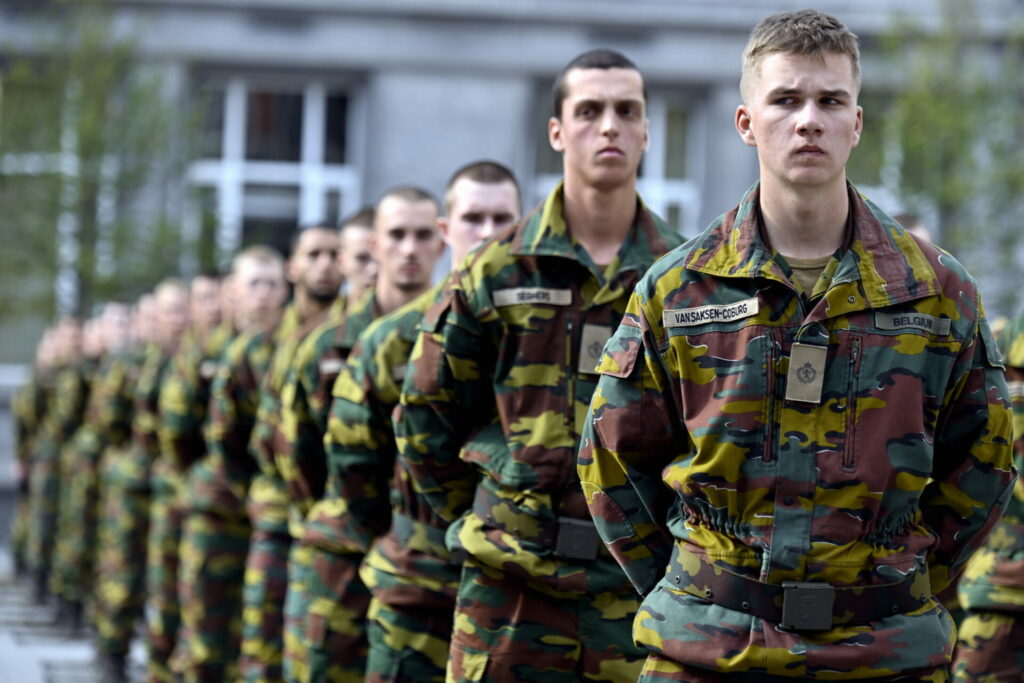As Russia's war in Ukraine continues, Belgian Federal MP for the Flemish rightwing N-VA party and Defence expert Theo Francken stated that he believes young people should give something back to society in the form of conscription or alternative civilian service.
Francken underlined the advantages of reinstating conscription, in which it would be compulsory for 18-year-olds to enrol for military service, in the VRT programme '#BelRiadh,' which invites several young people to discuss social issues that concern them with experts and politicians.
"I think that as a society, we can also ask for a bit more in return after 70 years of peace. We can ask young people for a piece of commitment, voluntary or otherwise," Francken said. "For me, that can be in the form of conscription, but also as alternate civilian service. Young people have become a bit too lazy, they need to become more resilient."
While Chief of Defence Michel Hofman has previously stated that conscription is something Belgium should consider bringing back in the longer term, Defence Minister Ludivine De Dedonder already stated that it is not an option for now.
'Greater sense of community in Belgium'
In his State of the Union address to Parliament on Tuesday, Prime Minister Alexander De Croo also said that bringing back general conscription "is not on the table," but added that a professional army does represent an opportunity for motivated young people "to fully develop their talents academically, militarily, athletically and character-wise."
According to a survey conducted in early March – days after Russia invaded Ukraine – 60% of Belgians would not take up arms to protect their country. For Francken, civilian service can create "a greater sense of community in Belgium" and make young people more resilient – even if it is the non-military kind.
While he added that there "certainly" are advantages to conscription, most of the young people in the conversation are not a fan of the mandatory aspect of it. "I definitely want to give something back to society, but I do not believe it should be compulsory," one of them said. "You would be making 18-year-olds, who have not even been able to vote for the idea, do something that other people have decided on."
Focus on diplomacy instead
Merel, who works for the Pax Christi peace movement, agreed that the Federal Government should make military and civilian service more accessible, but focus on diplomacy. "I know we live in uncertain times. We should not solve war with weapons, but with diplomacy," she said. "It is becoming increasingly difficult in politics to counter militarisation and with compulsory military service, we would only encourage that even more."
Francken understands that an obligation is a delicate issue, but believes that Belgium must be prepared for the worst. "We all see that diplomacy is working less and less well, countries like Russia as well as China and Iran are less and less approachable. We have to have a response to that as well."
While people should not panic just yet, he also said that we are facing difficult times. "We have had tremendous prosperity, but we are going to have to do everything we can to protect that prosperity and we definitely need our young people to do that."
Related News
- 'Europe is a gentle giant': Belgian PM De Croo delivers State of the Union
- Defence Minister assures that military service not ‘on the agenda’
- 60% of Belgians would not take up arms to protect their country
Other European countries such as Austria, Cyprus, Denmark, Estonia, Finland, Greece and Switzerland do still have conscription, but most of the testimonies by young people from one of these countries given to VRT were not in favour of mandatory military service.
Melvin, for example, joined the Finnish army for six months at the age of 19. "I did not see the point of it and did not learn anything, only how to kill people, but I had absolutely no need for that."
In Austria, Fabian could choose six months of military service or nine months of civilian service and picked the second option. "I am very satisfied with that, I helped people and learned a lot about a hospital. Six months in the army would have been a waste, not just of my time but also of the government's money. During six months, you cannot learn much and you still end up in the kitchen making food for the other soldiers."
Ten years ago, Romain had to join the Swiss army as an 18-year-old. While he is glad he had the experience and would probably do it again even if it were no longer compulsory, he underlined that he was trained to save people, not kill them – "which makes all the difference."

